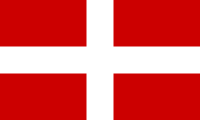Savoyan League Ligue savoisienne (French) Liga de la Savouè (Arpitan) | |
|---|---|
 | |
| Founded | 1995 |
| Dissolved | 2012 |
| Headquarters | 3, place du Val d'Arly 73400 Ugine |
| Ideology | Regionalism Separatism Populism |
| Colors | white, red |
The Savoyan League (French: Ligue savoisienne, Arpitan: Liga de la Savouè) was a regionalist and populist political party based in Savoy, France.[1]
Founded in 1995, the party supported the independence of Savoy from France and the unification of the two departments of Savoy, named Savoie and Haute-Savoie, which have belonged to France since the Treaty of Turin in 1860.[1][2] Formerly a member of the European Free Alliance,[3] the party was generally pro-European in outlook,[4] while lying on the right of the political spectrum.[5] The League co-operated with the Savoy Region Movement, which does not support independence but rather federalism and Savoyard autonomism.
In the 1998 regional elections, the League won 5.39% in Savoy (4.42% in Savoie and 6.05% in Haute-Savoie) and therefore won a seat in the Rhône-Alpes Regional Council.[2] It did not participate in the 2004 regional elections.
At the party's 17th Congress on 21 October 2012, the Savoyan League suspended its activities.[6]
References
- ^ a b Frans Schrijver (2006). Regionalism After Regionalisation: Spain, France and the United Kingdom. Amsterdam University Press. p. 205. ISBN 978-90-5629-428-1.
- ^ a b Daniele Caramani; Yves Mény (2005). Challenges to Consensual Politics: Democracy, Identity, and Populist Protest in the Alpine Region. Peter Lang. pp. 64, 89. ISBN 978-90-5201-250-6.
- ^ Robin Adamson (2007). The Defence of French: A Language in Crisis?. Multilingual Matters. p. 93. ISBN 978-1-85359-949-1.
- ^ Anthony M. Messina (2014). "European Disunion? The Implications of Super Diversity for European Identity and Political Community". In Andrew C. Gould; Anthony M. Messina (eds.). Europe's Contending Identities: Supranationalism, Ethnoregionalism, Religion, and New Nationalism. Cambridge University Press. p. 68. ISBN 978-1-107-03633-8.
- ^ Anthony M. Messina (2013). "Assessing the political relevance of anti-immigrant parties: the BNP in comparative European perspective". In Nigel Copsey; Graham Macklin (eds.). British National Party: Contemporary Perspectives. Routledge. p. 167. ISBN 978-1-136-82062-5.
- ^ (in French) Patrick-Alain Bertoni, « Ligue savoisienne, congrès du Bois : "Le poison de la division" rendu responsable de sa soustraction du paysage politique », Le Faucigny No. 43, 2012.
